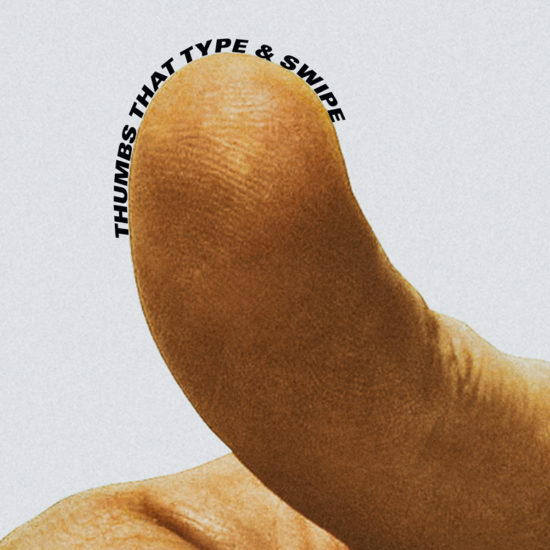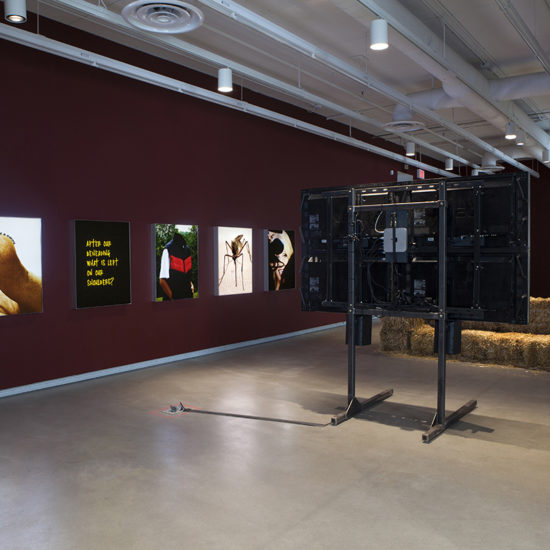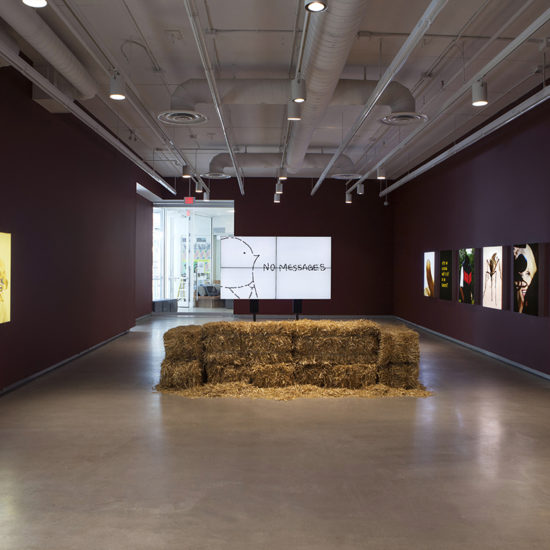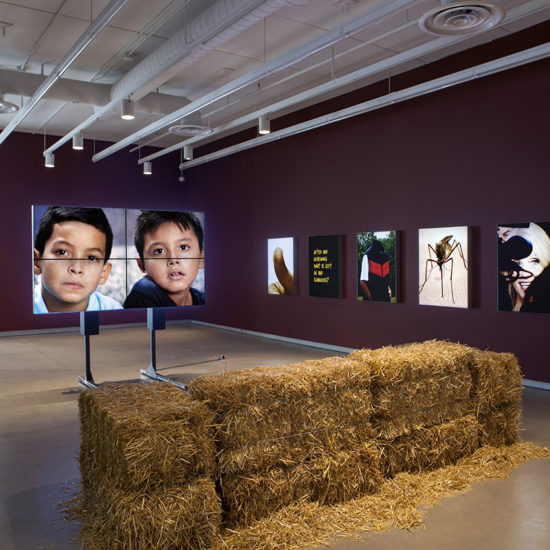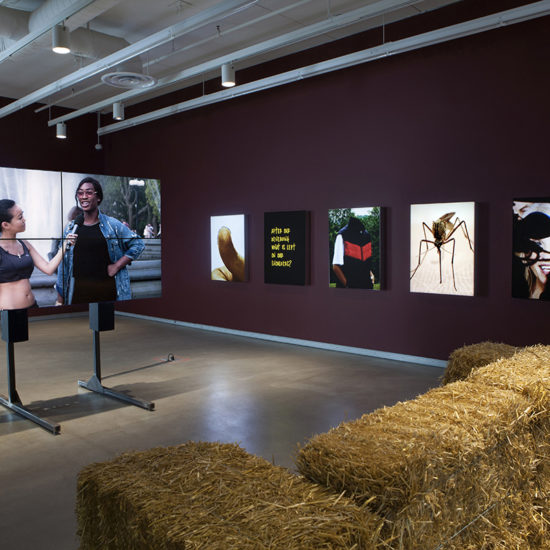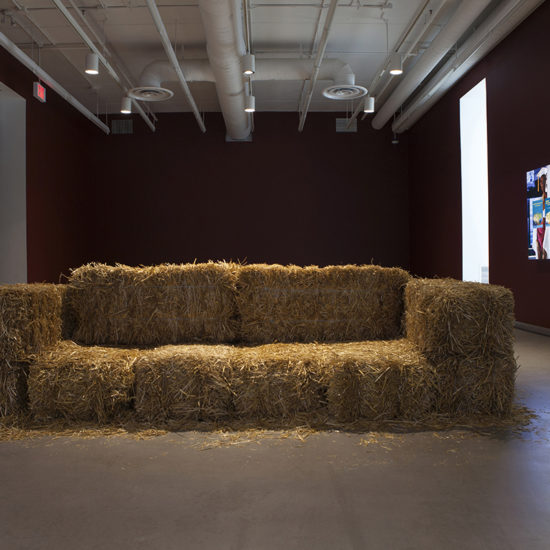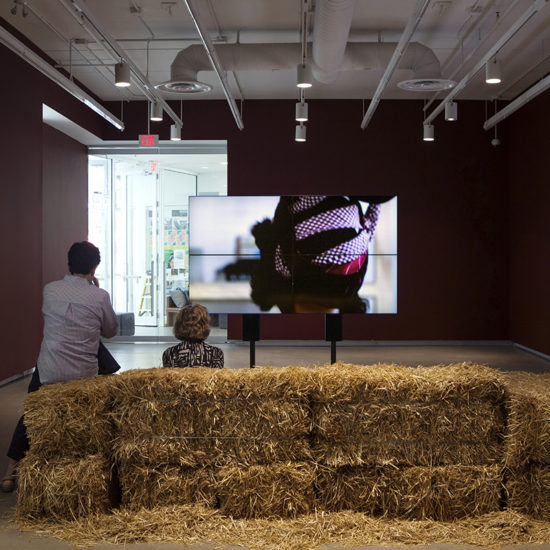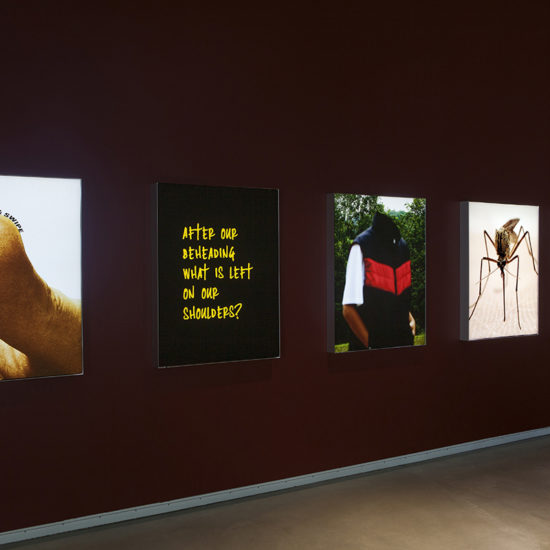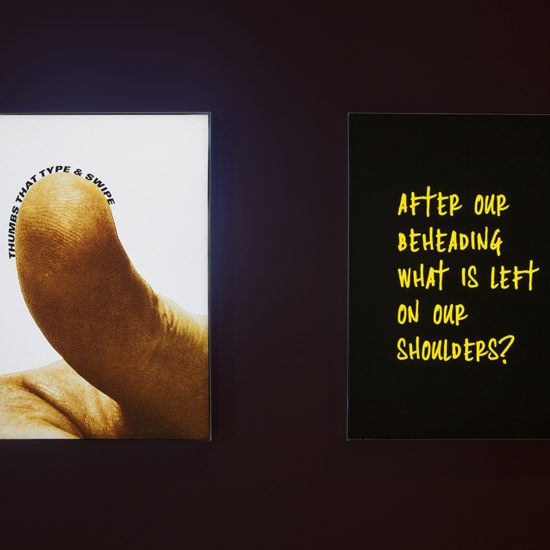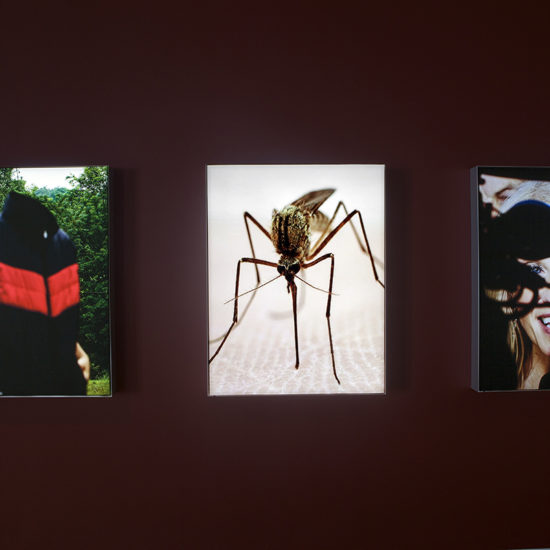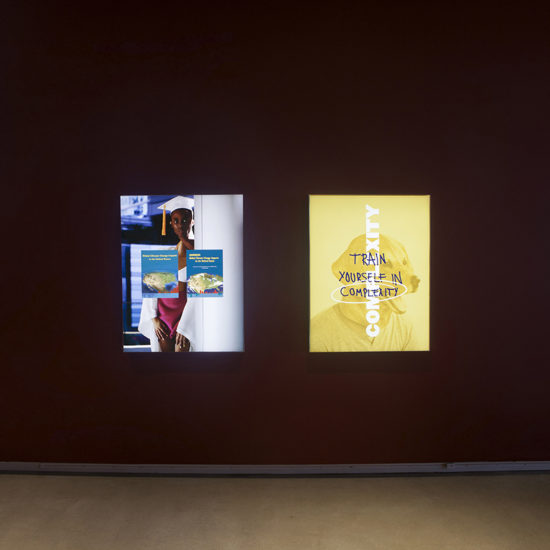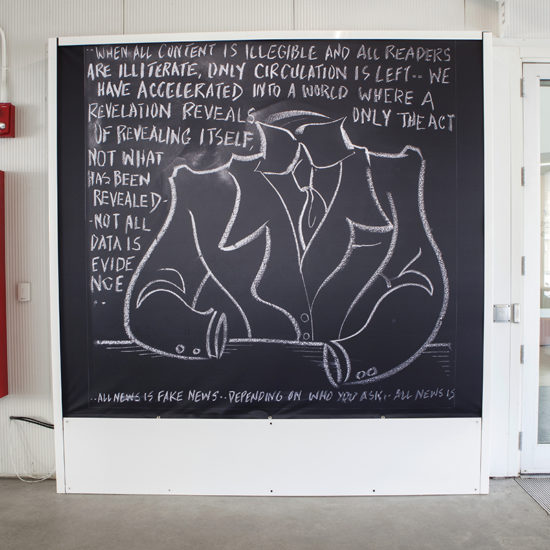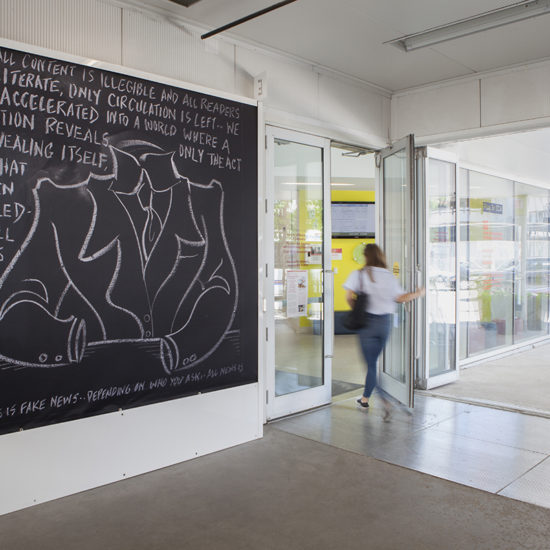DIS Collective
Thumbs That Type and Swipe: The DIS Edutainment Network
Exhibition Dates: June 26 – July 29, 2018
Summer Institute: June 25-July 7, 2018
Summer Party & Opening Reception: July 7, 2018
Visiting Speaker Series: Artist Talk by Ilana Harris-Babou
Tuesday, June 26 | 6pm
Video Speaker Series: Artist Talk with Hannah Black
Wednesday, June 27 | 6pm
Visiting Speaker Series: Video Talk with Simon Denny
Friday, June 29 | 11am
Visiting Speaker Series: Talk by Architect Nerea Calvillo
Friday, June 29 | 6pm
Video Speaker Series: Artist Talk with Aria Dean
Monday, July 2 | 6pm
Visiting Speaker Series: Artist Talk with Christopher Kulendran Thomas
Tuesday, July 3 | 6pm
Talk by Economist Dr. Evelyn Forget
Thursday, July 5 | 6pm
Rooftop Party and Open Studio
Saturday, July 7 | 7-11pm
Curatorial text:
“Welcome to DIS! Genre nonconforming edutainment.” This salutation spoken by Chus, an animated mouth-eye, who speaks and blinks at the same time, is our intermittent narrator and host through dis.art, a curated video program and DIS’s new video streaming platform. DIS, a collective formed in 2010 has been DISmagazine, DISown and DISimages. They curate, make installations and objects, and operate as a hybrid voice that crosses disciplines. In this multi-fold manner of production that frequently shifts identities, DIS questions the very value of segregating modes of making into specific fields of production or defined viewership.
They are connectivity — existing as popular culture, from fashion to advertising through varied platforms, from a shop to a lifestyle magazine, while channelling a criticality that doesn’t necessitate the specified category of ‘art.’ In their words, “critique should occur as a compulsory reaction in the body of the public, rather than as a field of specialised labour.”[i] Chus is both a mouth and an eye, seeing as they speak, observing and transmitting synchronously. Education and entertainment align as a means of critique and a methodology. It is a collision of disciplines that in DIS’s hands is both optimistic and dystopic in its visioning of future nations, reprisals of histories and representation of our present.
In Thumbs That Type and Swipe: The DIS Edutainment Network, DIS presents a program of videos from their website dis.art that range between documentary, instructional video and self-help guide. In an episode of Circle Time, artist, designer and editor of Bidoun Magazine, Babak Radboy teaches children about money, asking a small deadpan audience of under 5 year olds, “so what is money?” He continues, “money is a skeleton.” The children respond with little surprise. “It hides inside of everything that you see and holds it up like a puppet. If you see a chair, it looks like a chair, but it is also forty dollars; this room looks like a room but it is $20,000 a month.” He makes a compelling metaphor that moves into definitions of wages and labour. In another video, an interview captures the novelist and entrepreneur, and self-proclaimed Sea-evangelist, Joe Quirk pushing a new seaworthy technology that allows large structures to float, at a conference in Tahiti. Quirk details a sci-fi story in the making that posits movable sea-pods, which can disassemble and reassemble into segregated formations of politically aligned seafaring civic societies. And artist Casey Jane Ellison hosts a program, Mothers and Daughters, where she comedically, and at times uncomfortably, interviews her mother about their relationship in an attempt to unravel the oppositional perception of this matriarchal relationship as a fabricated legacy.
This video program is set within an installation that at first glance resembles tradeshow booths or world-fair pavilions. The walls painted a deep maroon with a selection of backlit photographs of people, objects and text. Four free standing, gridded and synched monitor’s play the video program of short vignettes in front of a couch made from hay bales. DIS could be selling international audiences on the merits of its nation’s policy and lifestyle, or as a corporation, selling its product with its contrived identity. Nations and corporations promote themselves in similar ways through production — gross national and domestic product growth are market gains, and the people they serve are citizens and customers.
In this iteration of Thumbs That Type and Swipe[ii] at Plug In Institute of Contemporary Art, seven images (from an enlarged and isolated mosquito to a close up of a ‘thumbs up’) are placed in light boxes commonly fabricated for advertising — selling you a pesticide or a national symbol? But of course you are in a gallery within an exhibition and this assemblage of seemingly incongruous images is selected by DIS who use the propaganda of nations and promotional material of markets to chop off heads. A figure stands in a fashionable down vest, hands in pocket, headless in a park amongst the trees, or on the video monitors, media theorist McKenzie Wark lectures about the possibility of a post pornographic state of being and techno gender, with his head in his hands or resting on the floor as his body paces near him. “After the beheading what is left on our shoulders?”
DIS’s stylized beheadings seem more about shaking one’s head, remembering the weight of it, and shifting one’s perception than a violent removal. But their agenda also reads as direr, pointed and critical of economic interconnections between commerce and state; the alignment of popular culture with consumers; and controlled flows of information through technology. Their questioning is systemic, asking how do we learn and who controls it? Both questions linked to streams of directed data. Who sees what and why?
DIS is a New York based collective best known for DIS Magazine (2010-2017), and curating the 9th Berlin Biennale for Contemporary Art (2016). DIS has become an umbrella for a number of networked and collaborative platforms – all of which reimagine one format or another.
Today DIS is focused on dis.art. While remaining true to the novel approaches to critical inquiry that defined life as a magazine, DIS is now focused on redefining entertainment and education through the new streaming platform on dis.art.
DIS enlists writers, filmmakers, and artists to offer new forms of genre-bending edutainment that help cut through the atomization and polarization that defines the noisy, disjointed mediasphere. In the last century, public television programming meant that quality information, education and artistic formats could go hand in hand.
List of Works
DIS
Onboarding: Thumbs that Type and Swipe, 2018
7 Lightboxes, 38” x 29”
Additional Text Drew Zeiba; Design Chris James
DIS.ART
Video program, total run time: 55 minutes. A compilation of video shorts featuring in order of appearance: DIS; Will Benedict and Steffen Jørgensen; Ryan Trecartin; Darren Bader; Malte Zander; Amalia Ulman; Ilana Harris-Babou; Maroon World; Ryan Trecartin; Casey Jane Ellison; Christopher Kulendran Thomas in collaboration with Annika Kuhlmann; Kim Laughton; Jacob Hurwitz-Goodman and Daniel Keller; Anastasia Davydova Lewis in collaboration with Eno Swinnen (A program guide is available at Plug In)
[i] Mahammad Salemy, “Dis in Conversation,” 2016. https://ocula.com/magazine/conversations/dis/
[ii] DIS’s exhibition at Plug In ICA is an edited version of its first presentation in Madrid at La Casa Encendida from February 2 to May 13, 2018.
Plug In ICA gratefully acknowledges the support of the Canada Council for the Arts, the Manitoba Arts Council and Winnipeg Arts Council. We extend gratitude to our Director’s Circle, valued members and dedicated volunteers.
Cultural Partner




